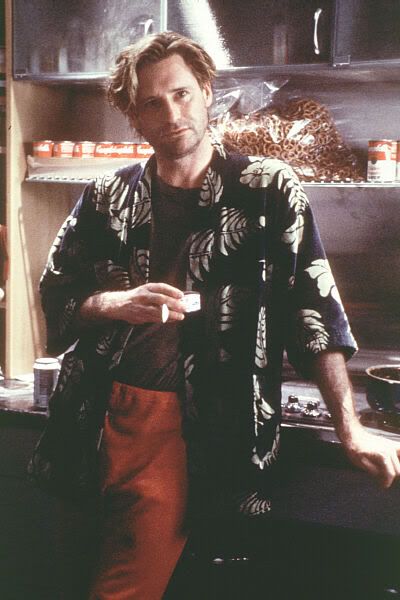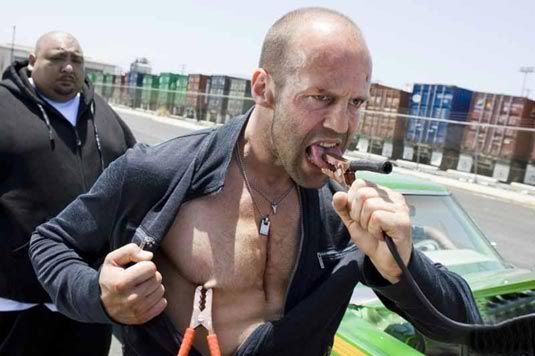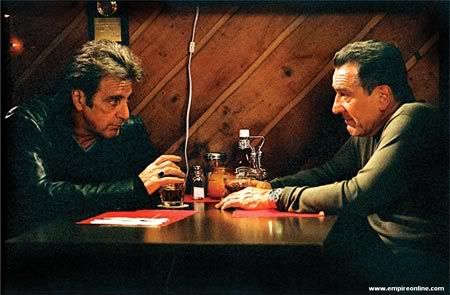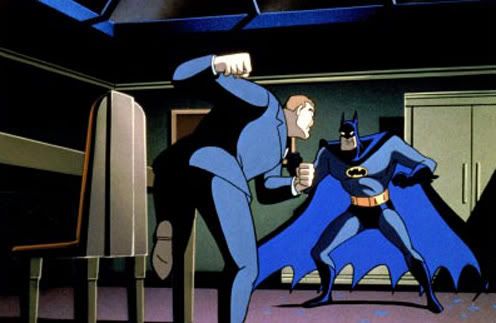
[audio:http://www.blueinkalchemy.com/uploads/changeling.mp3]
It wasn’t too long ago when the words ‘A Clint Eastwood Film’ described an action flick featuring a character that was either Dirty Harry Callahan, The Man With No Name or somebody who existed between the two. Clint Eastwood is someone along the lines of Robert DeNiro or Al Pacino: a star with a long history of delivering both furious action fueled by pure manliness, and dramatic turns that set him on a different level from other so-called ‘actors’ that don’t deserve mention at the moment. And Clint has further distinguished himself in that nowadays, ‘A Clint Eastwood Film’ means one he’s directed. I plan on going over all of his directoral offerings, and Changeling is a great place to begin. The film stars Angelina Jolie, Jeffrey Donovan, Colm Feore and John Malkovich.
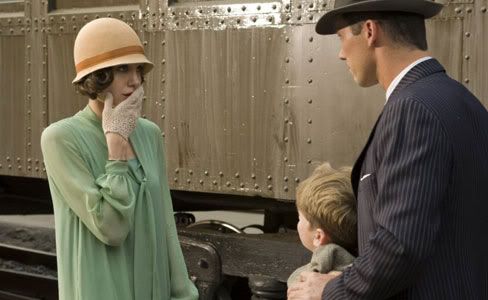
Why, Changeling? you might ask. Why not Unforgiven, his directoral breakout? Both it and Million Dollar Baby won him Oscars, why am I not starting there? What about Flags of Our Fathers, or Letters from Iwo Jima, his powerful war films? Why not Gran Turino, which includes perhaps the most manly and grit-filled rendition of “GET OFF MY LAWN” ever captured by a camera? These are valid questions, and I actually plan on taking time to review all of these – and no, it’s not just because I want to watch Gran Turino again.
Changeling is a good place to begin on Clint’s directoral work because it captures many of the aspects that make him such a visionary film-maker. With this riveting true story, we see the way Clint brings us into a bygone time, the handling of his actors and the framing of his shots. You might get some of these elements from Unforgiven, Flags of Our Fathers or even Mystic River, but Changeling does it with such natural grace that it feels less like 142 minutes of movie and more like an encapsulated lesson on how to effectively direct. Clint has brought us both the appeal and darkness of an oft-romanticised time in American history, along with a great performance from Angelina Jolie and one of the best turns by John Malkovich I’ve ever seen. Oh yeah, and he also gave us Jeffrey Donovan in a period suit with matching fedora.
An entire thesis could be written on the plot I haven’t mentioned yet, but here’s the short form and, as usual, it’s free of spoilers. Angelina Jolie is a hard-working supervisor at a telephone exchange in Los Angeles during the roaring ’20s. Her son is an intelligent, precocious youth who pulls off a pretty impressive feat by endearing himself towards us with only a few minutes of screentime. Mom comes home from work one day to find the house empty and the kid’s lunch uneaten in the icebox. A little police runaround brings her to the office of Jeffrey Donovan’s insufferable prick of a police captain who assures her that her son will be found. Sure enough, in a few months, she shows up at a train station when word comes her son’s been found, but after taking one look at the shorter, pudgier and more annoying child, she knows it’s not her child. The police disagree, citing her womanhood as the main cause for her baseless idea that the boy isn’t who they say he is. The mother insists, and soon it’s clear that the only person who’s fully in her corner and willing to match her zeal and devotion is the radio-broadcasting Presbyterian minister who believes the City of Angels has become a cesspool of corruption run by self-indulgent swine. It’s a little odd to see this compassionate yet occasionally brimstone-fueled spiritual leader being brought to us by way of Cyrus the Virus and Humma Kavula. I’m just glad he did something like this to wash the taste of that dreadful turn he did in Eragon out of our minds. I’ll keep praying he stays far away from anything related to Twilight.
Anyway, this is a fantastic film, and it features one of the cinematographic keys to Eastwood’s success. All of his films – that I’ve seen so far anyway, I still need to sit down and watch Unforgiven end to end – have what I like to call “a haunting etherealness.” Classic films can become dated in their look and material, and it can be difficult to hearken back to a bygone age without extensive set dressing or CGI which is often hit and miss in a drama. Clint Eastwood sends us back in time before we even realize we’ve been temporally displaced and has us invested in the characters just as quickly. Actors are, by and large, attractive folk (Angelina Jolie and Jeffrey Donovan in particular in this case) but Clint doesn’t let them get away with just being pretty faces. They believe in their material and we, in turn, believe in them. There’s no trick photography to distract us from the pace of the writing and the musical score does exactly what it says on the tin, underscoring the drama and action rather than overwhelming us with bombastic horns or one woman wails. Clint Eastwood’s careful and measured genius comes through in the final film as all of these elements, exemplary on their own, seamlessly fuse into a storytelling experience rarely seen in an age of mean-spirited gross-out money machines that laughably call themselves comedies, and video game adaptations that wouldn’t know a good story if it showed up at their door dressed in a corset and stockings.
I’m getting a little long-winded on this one, but I wanted to establish what I respect and love about the films of Clint Eastwood. As I said, I plan on reviewing them individually, but a common thread that defines them all is this singular excellence and haunting, timeless etherealness that puts him on the level of such seminal directors as Martin Scorsese and Francis Ford Coppola. If nothing else, he shows us that sometimes the best things we do in our lives might not happen until well into our adult years, which means we should never give up on our dreams and no matter how daunting the obstacles might be to reaching our goals, the only way we truly fail is if we quit. But I’m wandering off the point again. The point is: Changeling is an excellent, singular and unforgettable film, and you should put it on your Netflix queue without delay.
Josh Loomis can’t always make it to the local megaplex, and thus must turn to alternative forms of cinematic entertainment. There might not be overpriced soda pop & over-buttered popcorn, and it’s unclear if this week’s film came in the mail or was delivered via the dark & mysterious tubes of the Internet. Only one thing is certain… IT CAME FROM NETFLIX.

